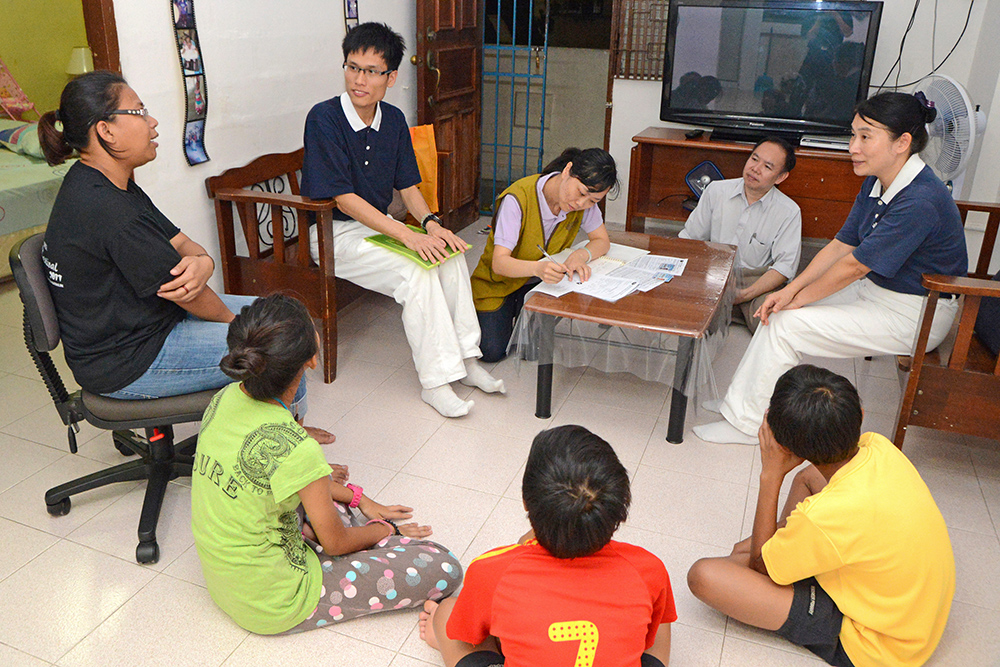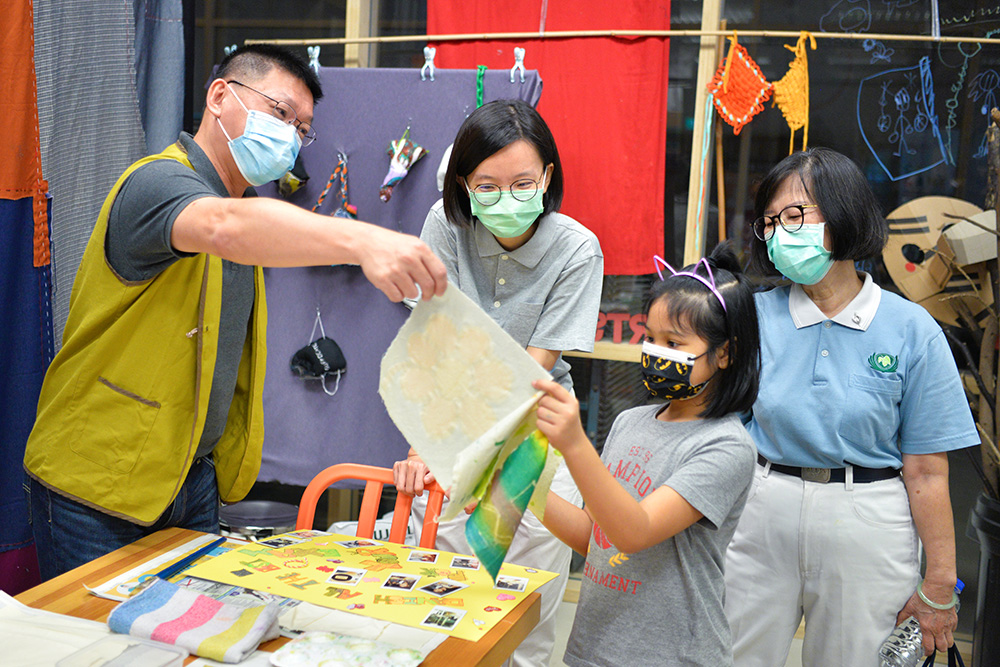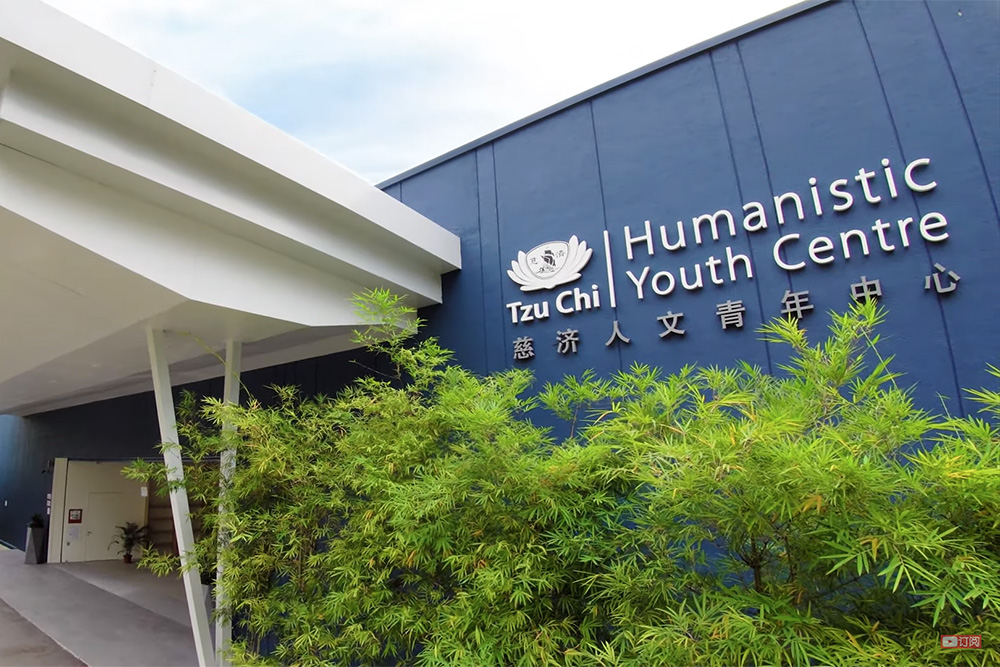Educational Assistance
Education is a fundamental human right. On a national level, high literacy is critical for long-term economic and social progress, whereas receiving a good education can be life-changing and thus provide the educated with a better future. However, students from low-income families tend to fare poorer than their peers as underprivileged families often struggle with multiple challenges and disadvantages due to the lack of financial stability and social resources.
Poverty is also a major reason why young people drop out of school to work to support their families. Whereas children born to high-income families have the upper hand as wealthy parents have more economic and social capital to give their children an edge through tuition, enrichment classes as well as access to better nutrition.
Determined not to let financial constraints get in the way of children’s school life, Tzu Chi provides education fee assistance to students from primary, secondary and tertiary education levels.
| |
Target Beneficiary |
Mode of Assistance |
| Primary & Secondary School Fees Assistance |
- Local students and valid Student Pass holders
- Assessed to have financial difficulty in affording basic school fees a on regular basis
- Students should apply for and tap on existing resources from MOE and other institutions as the first recourse
|
- Tenable for one academic year and renewal is required on annual basis
- Tenable for one academic year and renewal is required on annual basis
- Payment will be directly made to the school if approved
- Tzu Chi volunteers will engage beneficiary student through monthly home visits
- Financial Review will be conducted every April, August and December
- Academic Performance Review will be conducted through the submission of Mid-Term and Year-End Results Slips (For Attendance Review)
|
| Post Secondary Education Fees Assistance |
- Local Students and valid Student Pass holders
- Scope of Assistance includes: ITE, Poly, Universities or any professional certification
- Assessed to have financial difficulty to afford basic school fees on a regular basis
- Student should apply for and tap on existing resources from MOE and other institutions as first recourse (e.g. MOE Tuition Grant, Higher Education Bursary, Tuition Fee Loan, Study Loan, etc.)
|
-
Tzu Chi volunteers will engage beneficiary student through monthly home visits
-
Beneficiary student need to fulfil at least 10 hours of community services/enrichment programmes organised by Tzu Chi as part of the Community Involvement Programme (CIP) within 6 months
-
Quantum of subsequent funding will be evaluated based on the following criteria:
a.70%: Financial Needs Assessment
b.20%: Academic Performance
c.10%: Fulfilment of CIP Hours
|
Apply for Assitance
Seeds of Hope Programme
Education is the key to breaking the cycle of poverty. At the start of 2017, Tzu Chi launched the “Seeds of Hope Nurturing Programme” and “Seeds of Hope Meritorious Award Programme”, which aim at helping the children of its current care beneficiary households.
The “Seeds of Hope Nurturing Programme” served to assist the beneficiary students in their schooling needs. Besides helping to enhance their quality of education, it also hoped to encourage parents to pay more attention to their children’s education. Every year, between April to October, home visit team members will personally hand-deliver the grants to the beneficiary students during their monthly visits. At the same time, the volunteers will learn about the student’s progress in school, and give them care and support. The latter are also encouraged to take part in Tzu Chi’s eco-activities, to learn how to love and care for Mother Earth.
There are six types of awards in the “Seeds of Hope Meritorious Award Programme”, including “Filial Piety Award”, “Good Progress Award”, “Academic Excellence Award”, “Special Talent Award”, “Diligence Award”, and “Good Conduct Award”. Applicants of each award will undergo a stringent 6-month observation by a home visit team, and volunteers will assess their eligibility for the Award in November, along with feedback from their schools and parents (which also serves as an evaluation criterion). An Awards ceremony will be held in December and the Awards will be conferred on successful applicants during the event. The student awardees will receive affirmation and commendation for their efforts, as well as encouragement to bravely pursue their dreams to turn their lives around.
To better cater to the evolving needs of students at current times, the Seeds of Hope Programme has been gradually adjusted over the years to include four key elements, namely, Enabling through a bursary programme, Empowering through the annual conferring of merit awards, Nurturing through funding for various support which include home improvement and provision of study materials, and Mentoring through mentoring programmes by tertiary students as well as teachers who are members of Tzu Chi Teachers’ Association.
Click here to learn more about Tzu Chi’s Educational Assistance
Feature: When Seeds of Hope Bloom
Stories of Love and Compassion

Mentoring with Love
In 2020 and 2021, schools were shifted to home-based learning (HBL) for several times due to the evolving pandemic situation. Aware of the limitations and how prolonged HBL may negatively affect students’ academic progress and socio-emotional well-being, around 40 Tzu Chi Collegiate Youth members (Tzu Ching) and senior Tzu Ching members stepped up as academic mentors to help primary school children of Tzu-Chi care recipients adapt to digital learning and catch up with their studies. To make learning fun, the young mentors used various mediums, including slides, videos and discussions, to facilitate engagement with their mentees.
Besides academic coaching, imparting of virtues and positive soft skills were also included in every session as humanistic lessons were incorporated to guide students on handling failure, having a growth mindset and showing kindness to all. Many of the children had shown improvement in their academic subjects after two years of mentoring and parents and mentors were encouraged by their progress. With such a promising outcome and an ongoing need for such support, the programme is now a long-term service held offline on a biweekly basis (from 2023 onward) under the secondary assistance scheme.
Growing up under the care of Tzu Chi
Poh Wei Lun was a secondary school boy who grew up in a family with complicated background. Tzu Chi has been visiting him and his mother every month since he was a small boy. After his parents were divorced, he followed his mother as she remarried. Due to space constrain, Wei Lun has to sleep in the living room and study in the storeroom.
After the outbreak of COVID-19, Wei Lun started attending Mentoring with Love programme where he received tutorship from Tzu Chi youths to catch up with his studies and homework. The educational subsidy, which Wei Lun previously received monthly, had helped him pay for his tuition fees and educational supplies. Wei Lun exhibited significant changes in his studies and behaviour after years of companionship and mentoring, making him a repeat award recipient under the Seeds of Hope Programme.
The Good Space
The Good Space programme is an initiative by Tzu Chi Humanistic Youth Centre and Nee Soon grassroots to support youth, aged 15 to 25, and from less privileged backgrounds to break away from the poverty cycle through education. Eligible students are provided with financial assistance and optional befriending services to alleviate their financial and mental burden in completing their tertiary education.
Be a Volunteer Donate
Related News

This year’s Hari Raya Festive Gathering held special meaning for renal patient Muhammad Hisham. Just before the festive season, he was hospitalised due to a wound infection and missed the chance to reunite with his relatives. Being able to attend the Tzu Chi celebration with his mother and share the festive joy with fellow attendees, made this experience especially warm and precious for him.

The Lantern Festival symbolises the end of the Lunar New Year celebrations. On 16 February 2025, which is the 19th day of the first lunar month, Tzu Chi volunteers specially visited the Institute of Mental Health (IMH) to provide ongoing care and celebrate the New Year with the residents.

Tzu Chi’s Renal Friend Gathering this year featured a number of exhibition zones filled with interesting and interactive displays that allowed renal patients and their family to learn more healthcare tips on caring for their kidneys while contributing to sustainable environmental efforts.










